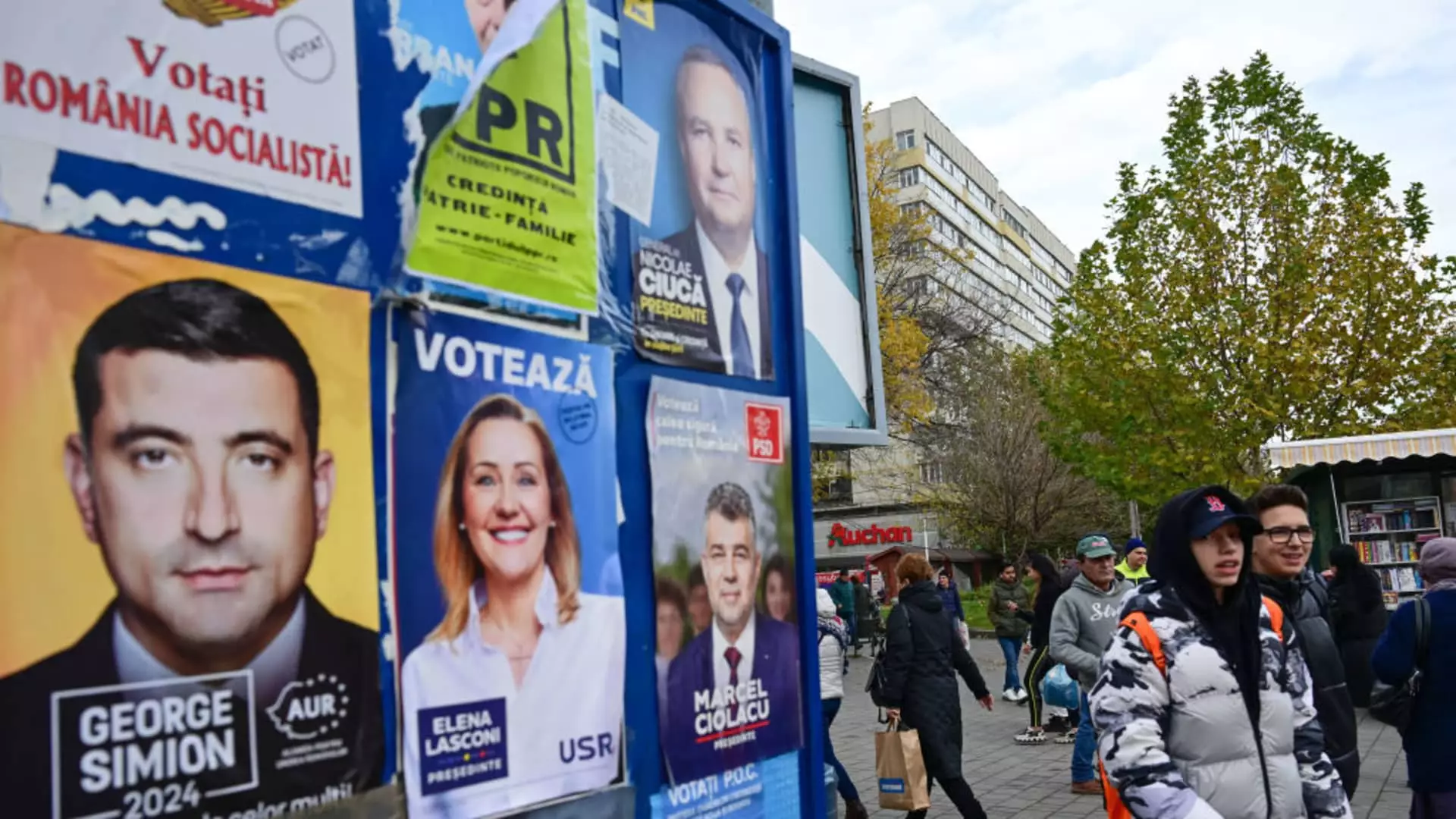The recent presidential election in Romania has delivered shocking results that signify a dramatic shift in the country’s political landscape. Far-right candidate Calin Georgescu garnered 22.94% of the vote, taking an unexpected lead in the first round. This outcome is particularly striking given that pre-election forecasts had anticipated his support to be significantly lower, suggesting an underlying transformation in voter preferences. Georgescu’s rise can be attributed to his adept use of modern campaign strategies, notably leveraging social media platforms like TikTok, which have gained traction among younger Romanians.
Georgescu will square off against Elena Lasconi, the pro-NATO candidate and leader of the Union Save Romania (USR) party, who secured 19.17% of the vote. This upcoming runoff, scheduled for December 8, pits two starkly contrasting visions for Romania’s future against each other. Lasconi embodies a progressive stance, advocating EU integration, military support for Ukraine, and comprehensive reforms focused on combating corruption and improving governance. Her approach resonates with a segment of the population that fears the implications of Georgescu’s far-right, nationalist agenda.
In a significant departure from historical trends, the ruling Social Democrat Party (PSD) led by Prime Minister Marcel Ciolacu failed to advance to the next round, finishing with 19.16% of the votes. This marks a critical moment in Romanian politics; since 1989, the PSD has consistently participated in presidential runoffs, but their absence this time hints at a waning influence among the traditional political elite. The presenting challenges for the PSD indicate a growing discontent among voters, who may be seeking alternatives to established parties that have dominated the political scene.
The presence of another far-right candidate, George Simion from the Alliance for Uniting Romanians (AUR), who secured 13.87% of the vote, further cements the notion that nationalism is gaining traction in Romania. This cultural and political shift could have profound implications for the country’s alignment within European frameworks and its relationship with Western allies. A rise in ultranationalist sentiments may steer Romania away from pivotal alliances, especially if candidates like Georgescu enact more aggressive policies.
Despite the surprising results, the overall voter turnout was relatively modest at 52.55%. The fact that nearly half of eligible voters abstained from participating raises concerns about political engagement and the future democratic health of Romania. As the country approaches the runoff election, it is crucial for candidates to address this apathy and mobilize undecided voters who hold significant sway over the election’s outcome.
Romania’s recent presidential election has unveiled a complex tapestry of shifting political ideologies, the rise of extremism, and a re-evaluation of traditional party politics. The December runoff will not just determine the next president but also signal the direction in which Romania is heading in an increasingly polarized Europe.


Leave a Reply